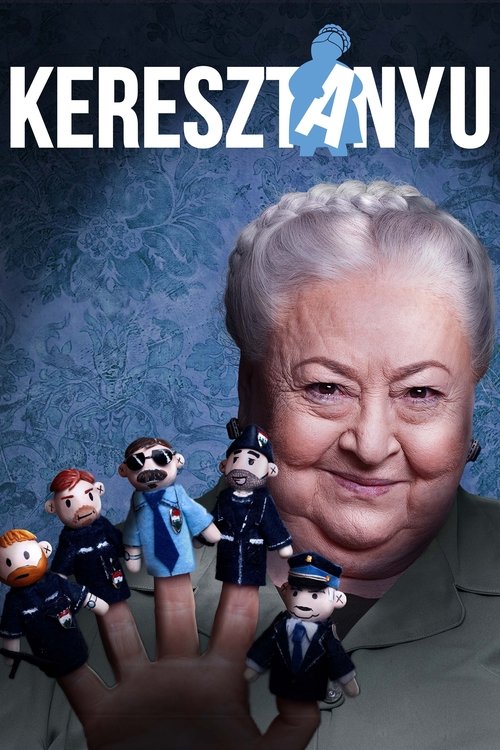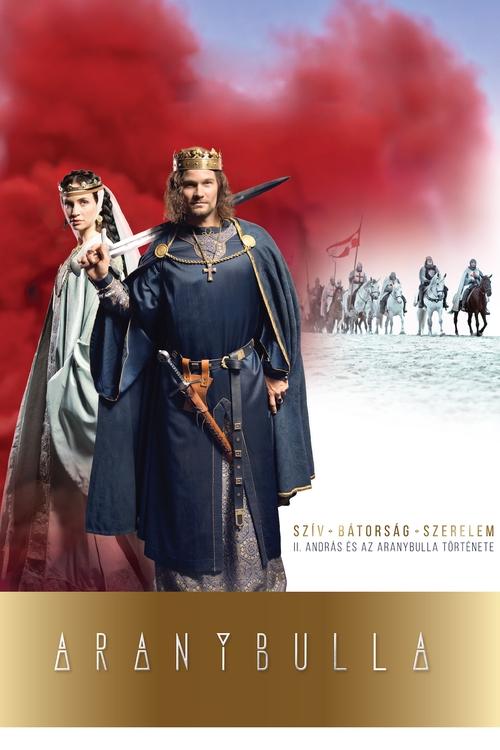
Ask Your Own Question
What is the plot?
In the year 2022, "The King" begins with a young Prince, who is initially portrayed as a reckless and carefree individual, living a life of indulgence and excess. He is often seen engaging in wild parties and ignoring the responsibilities that come with his royal lineage. His father, the King, is concerned about his son's behavior and the future of the kingdom, which is fraught with political tensions and external threats.
As the story progresses, the King falls gravely ill, and the Prince is thrust into a position of responsibility. The King's advisors and nobles begin to pressure the Prince to take on a more serious role in governance. The Prince struggles with the weight of expectation and the fear of failing his father and the kingdom. He experiences a turning point when he witnesses the suffering of his people due to the ongoing conflicts and realizes the importance of his role.
In a pivotal scene, the King dies, leaving the Prince to ascend the throne. The coronation is a grand affair, but it is overshadowed by the looming threats from rival factions and the unrest among the populace. The new King is determined to prove himself, but he faces immediate challenges from ambitious nobles who seek to undermine his authority. He must navigate the treacherous waters of court politics while trying to maintain peace in the kingdom.
The King decides to form alliances with neighboring territories to strengthen his position. He sends envoys to negotiate treaties, but these efforts are met with skepticism and resistance. During a tense negotiation scene, the King displays his newfound resolve, standing firm against the demands of a powerful rival lord. This moment marks a significant shift in his character, as he begins to embrace the responsibilities of leadership.
As the political landscape becomes increasingly volatile, the King learns of a conspiracy brewing within his court. A trusted advisor is revealed to be plotting against him, seeking to exploit the kingdom's vulnerabilities for personal gain. The King confronts this advisor in a dramatic showdown, where he must decide whether to show mercy or to eliminate the threat. Ultimately, he chooses to banish the advisor, a decision that solidifies his authority but also leaves him feeling isolated.
The tension escalates when a rival kingdom launches an attack, taking advantage of the King's perceived weakness. The King rallies his forces, demonstrating his growth as a leader. In a climactic battle sequence, he leads his troops into combat, showcasing both strategic acumen and bravery. The battle is intense, with vivid descriptions of the chaos and brutality of war. The King fights alongside his men, earning their respect and loyalty.
After a hard-fought victory, the King returns to his castle, but the cost of war weighs heavily on him. He grapples with the loss of life and the impact of his decisions on his people. In a moment of vulnerability, he confides in a close friend, expressing doubts about his ability to rule effectively. This emotional exchange highlights his internal struggle and the burden of leadership.
As the story nears its conclusion, the King faces a final test of his character when a peace treaty is proposed by the rival kingdom. He must decide whether to accept the terms, which may compromise his values, or to continue fighting for a more favorable outcome. After much deliberation, he chooses to pursue peace, recognizing that true strength lies in unity rather than conflict.
The series culminates in a poignant scene where the King addresses his people, sharing his vision for a united kingdom. He acknowledges the challenges ahead but expresses hope for a brighter future. The emotional weight of his journey is evident as he reflects on his transformation from a reckless prince to a wise and compassionate ruler. The story concludes with a sense of renewal and the promise of a new era for the kingdom, leaving the audience with a powerful image of the King standing resolutely before his people, ready to lead them into the future.
What is the ending?
In the ending of "The King," the protagonist, Henry V, faces the culmination of his struggles as he leads his troops into battle against the French at Agincourt. Despite overwhelming odds, he inspires his men and secures a decisive victory. The aftermath sees Henry solidifying his claim to the throne and contemplating the heavy burden of kingship, while his relationship with his father's legacy and his own identity as a ruler comes into sharper focus.
As the final scenes unfold, Henry stands victorious but reflective, aware of the sacrifices made and the challenges that lie ahead. The film concludes with a sense of both triumph and the weight of responsibility, leaving Henry to ponder the true cost of his crown.
The ending of "The King" begins with the tension of the battlefield at Agincourt. The air is thick with anticipation as Henry V, portrayed with a mix of determination and vulnerability, rallies his weary troops. The camera captures the mud-soaked ground, the weary faces of the soldiers, and the distant sounds of the approaching French army. Henry, clad in armor, stands before his men, his voice steady yet filled with the gravity of the moment. He speaks passionately about honor, duty, and the shared bond of brotherhood among them, igniting a flicker of hope in their hearts.
As the battle commences, the scene shifts to the chaos of combat. The clash of swords, the cries of men, and the thundering of hooves create a visceral experience. Henry fights alongside his men, embodying the spirit of a true leader. His internal struggle is palpable; he grapples with the fear of failure and the weight of his responsibilities as king. Each swing of his sword is not just a fight for survival but a fight for his identity and the legacy he wishes to forge.
In the midst of the battle, Henry encounters the French forces, led by the Dauphin, who underestimates the English king. The tide of the battle turns as Henry's strategic prowess and the unexpected resilience of his troops begin to shine through. The camera captures the moment of realization on the faces of both the English and French soldiers as the tide shifts. Henry's men, inspired by his bravery, push forward, and the French forces begin to falter.
As the dust settles, the aftermath of the battle reveals the stark reality of war. The ground is littered with the fallen, and the once vibrant landscape is now a somber reminder of the cost of victory. Henry stands amidst the chaos, his expression a mixture of triumph and sorrow. He surveys the battlefield, reflecting on the lives lost and the sacrifices made. The weight of the crown feels heavier than ever, and he understands that his victory comes with a profound sense of loss.
In the final moments, Henry is seen addressing his men, acknowledging their bravery and the bond they share. He speaks of the future, hinting at the challenges that await him as king. The camera lingers on his face, capturing the complexity of his emotions--pride, grief, and a newfound understanding of what it means to lead. The film closes with Henry looking towards the horizon, a symbol of hope and the uncertain path ahead.
The fates of the main characters are intertwined with this conclusion. Henry emerges as a stronger, more resolute leader, having faced the crucible of battle and the realities of kingship. The Dauphin, once arrogant and dismissive, is left defeated, a testament to the unpredictability of war and the consequences of underestimating one's opponent. The camaraderie among Henry's men solidifies, showcasing the bonds forged in the fires of conflict, while the specter of loss looms over them, reminding them of the price of their victory. The ending encapsulates the themes of honor, sacrifice, and the burdens of leadership, leaving the audience with a poignant reflection on the nature of power and the human cost of ambition.
Is there a post-credit scene?
In the 2022 TV show "The King," there is no post-credit scene. The series concludes its narrative without any additional scenes after the credits roll, focusing instead on wrapping up the story arcs of the main characters and the overarching themes of power, betrayal, and redemption. The final moments of the show leave viewers with a sense of closure regarding the fates of the key figures, emphasizing the weight of their choices and the consequences that follow.
What motivates the character of Lee Bang-won in his quest for power?
Lee Bang-won, the central character, is driven by a complex mix of ambition, a desire for stability in a tumultuous era, and a deep-seated need to prove himself worthy of his lineage. His internal conflict is palpable as he grapples with the moral implications of his actions, often reflecting on the sacrifices he must make for the greater good of the kingdom.
How does the relationship between Lee Bang-won and his father, King Taejo, evolve throughout the series?
The relationship between Lee Bang-won and King Taejo is fraught with tension and complexity. Initially, Lee Bang-won seeks his father's approval and guidance, but as he grows more ambitious, their bond strains under the weight of political machinations and differing visions for the future of the kingdom. This evolution is marked by moments of confrontation and reconciliation, showcasing the emotional turmoil both characters experience.
What role does the character of Jeong Do-jeon play in Lee Bang-won's rise to power?
Jeong Do-jeon serves as both a mentor and a political strategist for Lee Bang-won. His wisdom and vision for a new government structure are pivotal in shaping Lee Bang-won's ideology. However, their relationship becomes complicated as differing ambitions and loyalties emerge, leading to a profound sense of betrayal and conflict that tests their bond.
How does the series depict the struggles of the common people during Lee Bang-won's rise?
The struggles of the common people are vividly portrayed through various subplots that highlight their suffering under corrupt officials and the chaos of war. Scenes depicting famine, injustice, and the desperate measures taken by families to survive serve as a stark contrast to the political maneuverings of the elite, emphasizing the stakes of Lee Bang-won's quest for power and the impact of his decisions on the populace.
What are the key turning points in Lee Bang-won's relationship with his rivals?
Key turning points in Lee Bang-won's relationships with his rivals include strategic betrayals, unexpected alliances, and intense confrontations. Each encounter is charged with emotional stakes, revealing Lee Bang-won's cunning and ruthlessness as he navigates the treacherous political landscape. These moments not only shape his character but also set the stage for the larger conflicts that define the series.
Is this family friendly?
"The King," produced in 2022, is a historical drama that delves into themes of power, betrayal, and the complexities of leadership. While it offers a rich narrative, there are several aspects that may be objectionable or upsetting for children or sensitive viewers.
-
Violence and Warfare: The series includes scenes of battle and conflict, showcasing the brutality of war. These moments can be graphic, depicting injuries and the chaos of combat.
-
Political Intrigue and Betrayal: The plot involves intense political maneuvering, which may include scenes of betrayal and manipulation that could be difficult for younger viewers to understand or process.
-
Death and Loss: Characters face significant loss throughout the series, including the death of loved ones. These moments are portrayed with emotional weight, which may be distressing.
-
Mature Themes: The show explores themes of power, ambition, and moral ambiguity, which may be complex and unsettling for younger audiences.
-
Emotional Turmoil: Characters experience deep emotional struggles, including feelings of isolation, guilt, and despair, which may resonate strongly and evoke sadness.
Overall, while "The King" offers a compelling narrative, its mature themes and intense scenes may not be suitable for all viewers, particularly children or those sensitive to such content.































